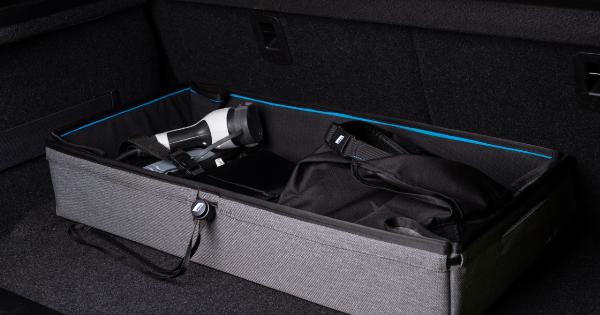Insurance can be confusing, especially when it comes to figuring out what you need and what you don’t. Insurance companies often offer a range of coverage options, but not every option is necessary.
Understanding what you don’t need in your insurance contract can help you save money and avoid unnecessary expenses. Here are ten things you might consider cutting from your policy:.
1. Excess Coverage
Excess coverage is additional coverage on top of your regular policy. While it may seem like a good idea to have extra protection, it’s often unnecessary. If you have sufficient coverage already, then you don’t need excess coverage.
Eliminating this extra coverage will save you money on your monthly premiums.
2. Rental Car Insurance
Rental car insurance is often offered by rental car companies, but it can be an unnecessary expense. If you have comprehensive and collision coverage on your personal policy, then you’re already covered for any damage to a rental car.
Check with your insurance company to see if this coverage is included in your policy before you pay for it at the rental counter.
3. Roadside Assistance
While roadside assistance can be helpful in an emergency, it’s often not necessary. Many credit card companies offer roadside assistance as a free perk, so you may already be covered.
If you have a new car that comes with a manufacturer’s warranty, then roadside assistance is included with the warranty.
4. High Deductibles
A high deductible can lower your monthly premiums, but it can also be risky. If you have a high deductible, you’ll have to pay more out of pocket before insurance kicks in.
This can be a problem if you have a large claim or multiple claims in a short period of time. It’s important to find a balance between a manageable deductible and an affordable premium.
5. Uninsured Motorist Coverage
Uninsured motorist coverage is designed to protect you if you’re in an accident with a driver who doesn’t have insurance. If you have comprehensive and collision coverage, then you’re already protected from uninsured drivers.
Eliminating this extra coverage can save you money on your monthly premiums.
6. Duplicate Coverage
If you have multiple insurance policies, make sure you’re not paying for duplicate coverage. For example, if you have health insurance through your employer and your spouse’s employer, you may be paying for duplicate coverage.
Make sure you understand the coverage offered by each policy and eliminate any duplicate coverage that’s unnecessary.
7. Personal Injury Protection
Personal injury protection (PIP) is designed to cover medical expenses and lost wages in the event of an accident. While this coverage can be valuable, it’s often not necessary if you have good health insurance.
If you have a high deductible health insurance plan, then PIP may be worth considering, but if not, you may be able to eliminate it from your policy.
8. Payment Protection
Payment protection is insurance that covers your loan payments if you become disabled or lose your job. While this coverage may seem like a good idea, it’s often unnecessary.
If you have disability insurance or an emergency fund, then you don’t need payment protection. Eliminating this extra coverage can save you money on your monthly premiums.
9. Named Peril Coverage
Named peril coverage is a type of insurance that only covers specific risks, such as fire, theft, and wind damage. If you have comprehensive coverage, then you’re already covered for all risks, not just named perils.
Eliminating this extra coverage can save you money on your monthly premiums.
10. Accidental Death and Dismemberment Insurance
Accidental death and dismemberment insurance (AD&D) is designed to provide coverage in the event of a serious accident. However, it’s often unnecessary if you already have life and disability insurance.
AD&D coverage typically only pays out in very specific circumstances, and you may be better off putting that money towards a more comprehensive policy.
Conclusion
While insurance is important, not every coverage option is necessary. Understanding what you don’t need in your insurance contract can help you save money and avoid unnecessary expenses.
Consider reviewing your policy to see if any of these options can be eliminated.



























